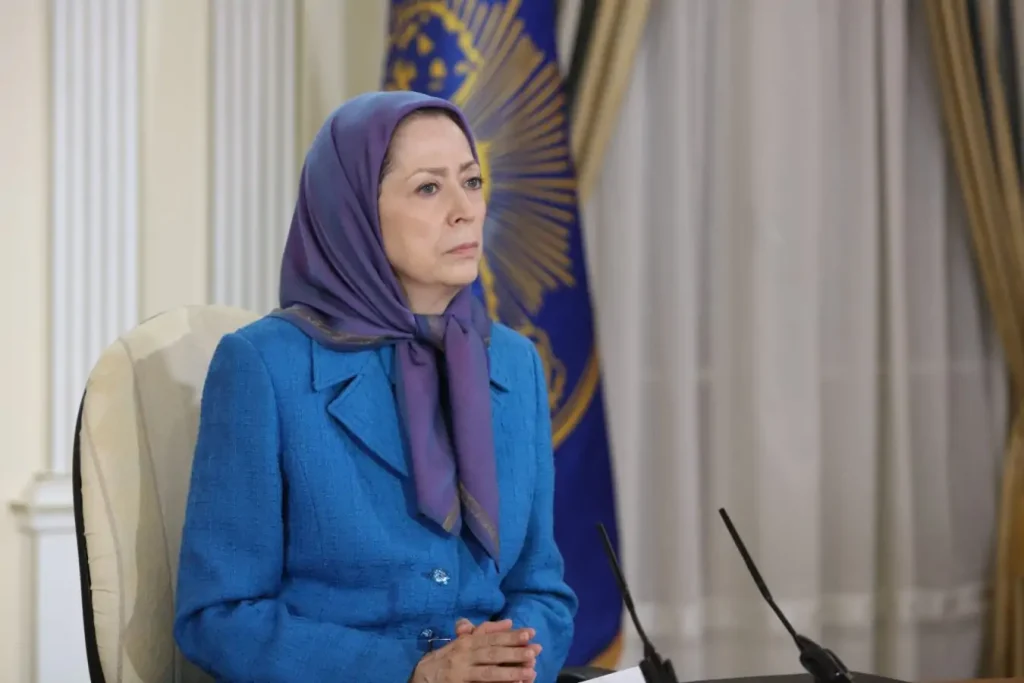On the Anniversary of the Adoption of the NCRI Plan on Relations Between Religion and State

The NCRI Plan on Relations Between Religion and State represents the council’s response to the experience of religious fascism and the brutal tyranny imposed under the guise of Islam.
This plan, approved by the NCRI in November 1985, states that “no religion or faith shall possess any special rights or privileges, under any circumstances.” At the same time, it upholds the “freedom of religions and faiths.”
The NCRI plan firmly opposes enforced religion and religious compulsion, rejecting any form of “discrimination, privilege, or political and social coercion” justified in the name of Islam.
The NCRI Platform, adopted in 1981, emphasizes “equality of political and social rights for all citizens” and the elimination of “all gender, ethnic, and ideological privileges.”
Indeed, the very establishment of this council and the relationships among its members represent a practical model of the separation of religion and state, as well as a free and equal republic.
The NCRI Plan on Relations Between Religion and State was adopted in November 1985. On one hand, it asserts that “no religion or belief is recognized as having any special rights or privileges,” while on the other, it emphasizes “the freedom of religions and beliefs.”
Article 1 of this plan emphasizes that “any form of discrimination against followers of different religions and beliefs in enjoying individual and social rights is prohibited. No citizen shall be granted any privilege or subjected to any disadvantage in matters such as running for office, voting, employment, education, judicial matters, or other individual and social rights based on their belief or non-belief in any religion.”
At that time, Massoud Rajavi stated that the adoption of this plan was “a special honor for all followers of the true Muhammadan and Alavi faith.” Two years earlier, he had declared:
“Contrary to Khomeini, we have never sought, nor will we ever seek, to impose our ideology or beliefs on any individual or group. We recognize the free will of the Iranian people as the sole legitimate basis for political power. Furthermore, we view the imposition of any ideology or belief (including that of the Mojahedin), and the forced implementation of its principles and standards (even on a dissenting individual), as the clearest sign of weakness, rootlessness, instability, and inevitable collapse, as stated in the Quran and emphasized by all the prophets and Imams.”
In fact, the NCRI has successfully addressed an issue that surfaced during the debates over the constitutional amendments in the First Majlis. At that time, a major rift emerged between the constitutionalists and advocates of the rule of law and democracy on one side, and the proponents of the rule of religion, including Sheikh Fazlollah and the supporters of the ruling clerical Islam, on the other.
The advocacy of the rule of religion ultimately led to tyranny under the guise of religion in the system of Velayat-e Faqih, which for 42 years, the people of Iran have endured in their flesh, skin, and bones, along with its devastating consequences.
In stark contrast to this religious tyranny, the Mojahedin (PMOI), as a member of the NCRI, represents an Islam that is the antithesis of Khomeini’s reactionary version and the ignorance and backwardness embodied by him and the Velayat-e Faqih regime.
When a movement like the PMOI, with its progressive vision, endorses the abolition of any privileges for followers of any religion within this council, the plan on the separation of religion and state becomes clearly distinct from mere rhetoric, truly supported by a deep and formidable foundation.
The Mojahedin’s Groundbreaking Path: Defending the Principle of the Separation of Religion and State
The Mojahedin’s groundbreaking position is their defense of the principle of the separation of religion and state, which leaves no room for tyranny under the guise of God or for religious discrimination. Support for this principle could not have gained true significance and impact unless a Muslim force took the lead. Across the Middle East and the Muslim world, this is the only example of a Muslim resistance movement defending the separation of religion and state and paving the way for democracy. In defending this principle, we have confronted religious coercion and the imposition of faith. Does this principle diminish or revise the core tenets of Islam? No, on the contrary, it upholds the true spirit of Islam, as Massoud Rajavi, the , has stated: “Islam does not need to assert its legitimacy—including political legitimacy—through force or coercion… We firmly believe that Islam’s true flourishing comes from rejecting any form of discrimination, privilege, or political and social coercion.”
Does the separation of religion and state mean that, in a society liberated from dictatorship, no individual or group should be allowed to act in the name of Islam? No, what it means is that, as outlined in the NCRI plan, the legitimacy of the ruling power comes from the ballot boxes, and no one will be granted any privilege or suffer any deprivation based on their belief or disbelief in any religion. It also guarantees religious freedom, ensuring that both Muslims and followers of other religions are free to practice their faith without any form of discrimination.
In a charter he drafted in the 11th year of the Islamic calendar in Medina, the Prophet Muhammad stated: “The Jews are like one nation with the Muslims, with the distinction that the Jews follow their own religion, and the Muslims follow theirs.” What we are advocating is the rejection of tyranny under the guise of religion. Our message embodies the essence of a significant historical experience—the failure of religious dictatorship in Iran. We are committed to dismantling the foundations of division, whether in the name of Shia or Sunni. The exploitation of religion for power-driven agendas must come to an end.
- Tags: Iran, Maryam Rajavi, NCRI, people of Iran

